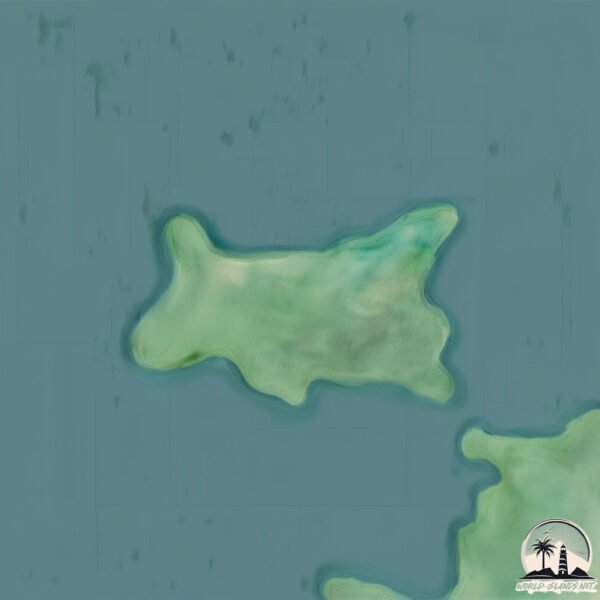Pickersgill

Welcome to Pickersgill, a Temperate island in the Tasman Sea, part of the majestic Pacific Ocean. This guide offers a comprehensive overview of what makes Pickersgill unique – from its geography and climate to its population, infrastructure, and beyond. Dive into the details:
- Geography and Size: Explore the island’s size and location.
- Climate and Weather: Weather patterns and temperature.
- Topography and Nature: Uncover the natural wonders of the island.
- Infrastructure and Travelling: Insights on reaching, staying, and making the most of your visit.
- News and Headlines: Latest News.
Geography and size of Pickersgill
Size: 1.089 km²
Coastline: 6.9 km
Ocean: Pacific Ocean
Sea: Tasman Sea
Continent: Oceania
Pickersgill is a Small Island spanning 1.1 km² with a coastline of 6.9 km.
Archipel: Polynesia – A region of more than 1,000 islands in the central and southern Pacific Ocean, known for their diverse Polynesian cultures, stunning landscapes, and marine biodiversity.
Tectonic Plate: Australia – A major tectonic plate covering Australia, New Zealand, and parts of the Indian and Pacific Oceans, known for its relative stability and occasional seismic activity.
The geographic heart of the island is pinpointed at these coordinates:
Latitude: -41.16001584 / Longitude: 174.28212713
Climate and weather of Pickersgill
Climate Zone: Temperate
Climate Details: Temperate Oceanic Climate
Temperature: Warm Summer
Climate Characteristics: Known for its moderate year-round temperatures with ample rainfall and no dry season. Warm summers are characteristic.
Topography and nature of Pickersgill
Timezone: UTC+12:00
Timezone places: Pacific/Auckland
Max. Elevation: 64 m
Mean Elevation: 53 m
Vegetation: Evergreen Needleleaf Forest
Tree Coverage: 95%
The mean elevation is 53 m. The highest elevation on the island reaches approximately 64 meters above sea level. The island is characterized by Plains: Flat, low-lying lands characterized by a maximum elevation of up to 200 meters. On islands, plains are typically coastal lowlands or central flat areas.
Dominating Vegetation: Evergreen Needleleaf Forest
Dominated by evergreen coniferous trees such as pines and firs, which retain their needle-like leaves throughout the year. These forests are often found in cooler climates. Pickersgill has a tree cover of 95 %.
Vegetation: 1 vegetation zones – Minimal Diversity Island
These islands exhibit the most basic level of ecological diversity, often characterized by a single dominant vegetation type. This could be due to extreme environmental conditions, limited land area, or significant human impact. They represent unique ecosystems where specific species have adapted to thrive in these singular environments.
Infrastructure and Travelling to Pickersgill
Does the island have a public airport? no.
There is no public and scheduled airport on Pickersgill. The nearest airport is Picton Aerodrome, located 41 km away.
Does the island have a major port? no.
There are no major ports on Pickersgill. The closest major port is PICTON, approximately 32 km away.
The mean population of Pickersgill is 0 per km². Pickersgill is Uninhabited. The island belongs to New Zealand.
The name of the island resonates across different cultures and languages. Here is how it is known around the world: Arabic: الجزيرة الجنوبية; German: Südinsel; Spanish: Isla Sur; French: Île du Sud; Portuguese: Ilha Sul; Russian: Южный остров; Chinese: 南島
Continuing your journey, Arapawa is the next notable island, situated merely km away.
Christmas Day at Pickersgill Island, Queen Charlotte Sound NZ



New Zealand is classified as Developed region: G7: Group of Seven – Major advanced economies, including Canada, France, Germany, Italy, Japan, the United Kingdom, and the United States. The level of income is High income: OECD.
News – Latest Updates and Headlines from Pickersgill
Stay informed with the most recent news and important headlines from Pickersgill. Here’s a roundup of the latest developments.
Please note: The data used here has been primarily extracted from satellite readings. Deviations from exact values may occur, particularly regarding the height of elevations and population density. Land area and coastline measurements refer to average values at mean high tide.
